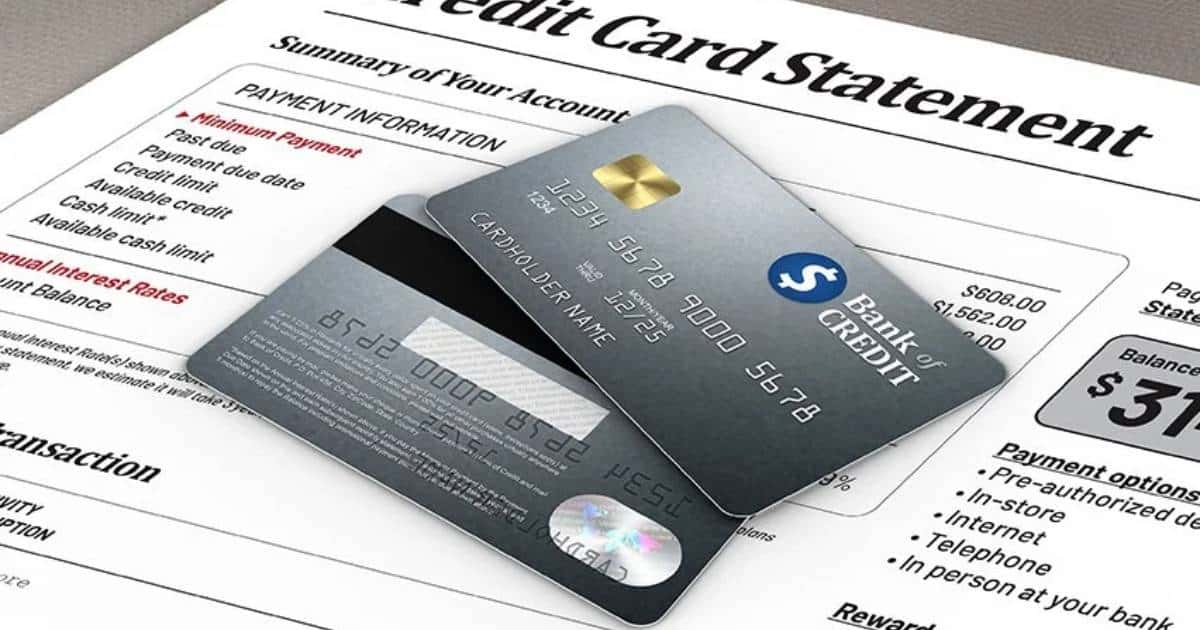Have you ever gone through your bank statement, only to scratch your head at an unfamiliar code like “Comn Cap APY F1″? It’s natural to feel puzzled and even a tad uneasy when faced with such cryptic abbreviations.
After all, managing personal finances is no easy feat, and every charge needs to be accounted for. Fear not, for this article will unravel the mystery behind this perplexing code, leaving you better equipped to navigate the often-confusing world of banking.
Whether you’re a seasoned financial guru or just starting, understanding these charges is crucial for maintaining a firm grasp on your monetary matters. So, let’s dive in and demystify the “Comn Cap APY F1” code, empowering you to take control of your financial destiny!
Cracking The Transaction Code: ACH-COMN-CAP-APY-F1
To truly comprehend the “Comn Cap APY F1” charge, we must first dissect the code itself. Here’s a breakdown of each component:
- ACH: These three letters stand for Automated Clearing House, a network that facilitates electronic payments and money transfers between financial institutions. Think of it as the digital highway through which your money travels securely from one account to another.
The Automated Clearing House (ACH) network is a crucial component of the modern financial system, enabling billions of transactions annually. It operates much like the circulatory system in the human body, ensuring the smooth flow of funds between various banks, credit unions, and other financial entities. - COMN: This abbreviation represents Comenity, a specialized financial institution that partners with major retailers to provide store credit cards.
Comenity has established itself as a powerhouse in the realm of retail financing, forging strategic alliances with countless well-known brands to offer consumers convenient credit options tailored to their shopping experiences. - CAP: Short for “Capital,” this part of the code directly refers to Comenity Capital Bank.
As the name suggests, Comenity Capital Bank is the financial backbone of Comenity’s operations, providing the capital and infrastructure necessary to support the vast network of retail partnerships and store credit card programs. - APY: In this context, APY stands for AutoPay, a convenient system that automatically deducts funds from your account to cover recurring charges or bill payments.
The AutoPay feature, also known as automatic bill payment, is a game-changer for busy individuals juggling multiple financial obligations. It streamlines the payment process, ensuring that your bills are paid on time without the need for manual intervention, thus preventing late fees and potential credit score damage. - F1: This code could signify a specific store card or credit card associated with Comenity Capital Bank. For example, “F1” is the magic code for the new Ulta credit card or other store-specific cards.
The “F1” component often serves as a unique identifier for a particular retail partner or store card program. It helps distinguish between various credit products offered by Comenity Capital Bank, ensuring that charges are accurately attributed to the appropriate account.
With this breakdown, the “Comn Cap APY F1” charge essentially translates to an automatic payment made through the Automated Clearing House network to a credit card issued by Comenity Capital Bank. The “F1” portion may represent a particular store card or credit card account you hold.
Why Is This Code on My Bank Statement?
Now that we’ve cracked the code, you might be wondering why this charge is appearing on your bank statement. Here are a few common scenarios:
You’ve Authorized Payments Through Comenity Capital Bank
Perhaps the most likely explanation is that you have an account or credit card with Comenity Capital Bank, and you’ve authorized automatic payments without realizing it.
You could possess a card that falls under the Comenity Capital Bank umbrella, leading to this charge on your statement. “I had no idea my store card was issued by Comenity Capital Bank until I saw this charge on my statement,” shares Sarah, a long-time shopper at a popular retail chain. “It all makes sense now, and I’m glad I took the time to understand where this charge was coming from.”
Authorizing automatic payments can be a double-edged sword. On one hand, it simplifies the payment process and ensures you never miss a due date. However, it’s essential to keep track of these authorizations to avoid any unexpected charges or overdraft fees.
Read More Post: How2invest-Interactive Tools & Financial Growth
Might be You’ve Utilized a Store Card
If you’ve ever made a purchase using a store card at major retailers or warehouse clubs, the “Comn Cap APY F1” charge could be tied to this. Comenity offers store card services through various brands, including:
- ULTA
- IKEA
- Costco
- Victoria’s Secret
- J. Crew
- Pottery Barn
And many more. So, if you’ve swiped a credit card at any of these establishments, the “Comn Cap APY F1” charge likely originates from that transaction.
Store cards can be a convenient way to earn rewards, discounts, and promotional offers, but it’s crucial to read the fine print and understand the terms and conditions.
Many store cards come with higher interest rates and fees, so it’s wise to pay off balances promptly to avoid excessive charges.
It’s an Auto-Payment
In most cases, the “Comn Cap APY F1” charge stems from an auto-payment processed by Comenity on behalf of a store service. This means that Comenity Capital Bank takes care of the payment directly, rather than the store handling it separately.
| Pros of Auto-Payments | Cons of Auto-Payments |
| Never miss a payment due date | Risk of overdraft fees if funds are insufficient |
| Avoid late fees and penalties | Potential for unauthorized charges if not monitored closely |
| Simplify financial management | Loss of control over timing of payments |
While auto-payments can be a convenient solution for managing recurring bills, it’s essential to keep a close eye on your bank statements and account balances to ensure sufficient funds are available and to identify any unauthorized charges promptly.
If none of these scenarios ring a bell, don’t panic just yet. Review your recent statements carefully and cross-reference them with any paper or email bills you might have.
If you’re still uncertain, don’t hesitate to reach out to your card issuer or bank for clarification.
Who Is This Comenity Capital Bank, Anyway?
Before we proceed, let’s take a moment to get acquainted with Comenity Capital Bank and its role in the financial landscape.
Comenity Capital Bank is a specialized financial institution that partners with major retailers and stores to provide store cards to their customers. It’s like the invisible hand behind the scenes, making your retail credit card experience possible.
While you might not have a direct account with Comenity Bank, you could be using one of their cards without even realizing it. They’ve struck up partnerships with numerous retailers across the United States and the United Kingdom, facilitating store credit card services for countless consumers.
“Comenity Capital Bank has been a game-changer for our business,” remarks a retail executive. “Their seamless integration of store card services has allowed us to offer our customers convenient financing options, boosting loyalty and driving sales.”
By joining forces with Comenity Capital Bank, retailers can leverage the bank’s expertise in consumer credit, risk management, and payment processing.
This symbiotic relationship allows retailers to focus on their core business while providing customers with a streamlined shopping experience and access to financing options.
Can I Dispute This Charge?
If you find the “Comn Cap APY F1” charge on your bank statement and it still doesn’t make sense, your first step should be to contact your bank or card issuer.
Be prepared to provide as much detail as possible about your case, especially if you suspect any foul play. Your bank or issuer might want to know about your spending habits when you first spotted these charges on your account, and any other relevant information.
If you have any inkling that someone might be opening accounts or snagging cards in your name without your consent, it’s crucial to report it promptly.
“I noticed an unfamiliar charge on my statement, and after reviewing my records, I realized it wasn’t mine,” recalls John, a victim of identity theft. “I immediately contacted my bank, and they walked me through the process of disputing the charge and securing my account.”
Your bank or issuer can offer guidance on disputing unauthorized charges and might take additional measures to beef up your account security, such as issuing new cards and PINs.
In cases of suspected fraud or identity theft, they may also recommend placing a credit freeze or fraud alert on your credit report to prevent further damage.
Remember, time is of the essence when it comes to addressing questionable charges or potential fraud. The sooner you report any suspicious activity, the better your chances of resolving the issue and minimizing any financial losses.
FAQs
To further clarify any lingering questions, here are some frequently asked questions and their corresponding answers:
I don’t have an account with Comenity Capital Bank. Why am I seeing this charge?
Even if you don’t have a direct account with Comenity Capital Bank, you might have used a store-specific credit card linked to Comenity Bank at participating retailers. The charge could be related to one of these store cards.
How can I confirm if the “Comn Cap APY F1” charge is legitimate?
To confirm the legitimacy of the charge, review your recent purchases and check for any store-specific credit cards you may have used. Cross-reference the charge with any paper or email bills you have received. If you’re still unsure, contact your bank or card issuer for clarification.
Is Comenity Capital Bank a legitimate financial institution?
Yes, Comenity Capital Bank is a legitimate financial institution. They specialize in providing store-specific credit cards in partnership with various retailers and brands. While you may not have heard of them directly, they operate behind the scenes to facilitate retail credit card services.
Can I opt out of automatic payments with Comenity Capital Bank?
Absolutely. If you prefer to have more control over your payments, you can contact Comenity Capital Bank or the respective retailer and request to disable automatic payments. This will allow you to make manual payments according to your preference and budget.
What should I do if I suspect fraudulent activity related to a Comenity Capital Bank charge?
If you suspect any fraudulent activity, it’s crucial to act swiftly. Contact your bank or card issuer immediately and report the suspicious charges. They will guide you through the process of disputing the charges and taking necessary steps to protect your account and personal information.
Closing: Navigating the Financial Maze
Ah, the world of finance, where codes and numbers often leave us feeling like Alice in Wonderland’s rabbit hole. But remember, you’re not alone on this journey. Understanding the “Comn Cap APY F1” charge and the role of Comenity Capital Bank is your key to financial confidence.
If you ever encounter unfamiliar charges or find yourself lost in the financial maze, always remember to take proactive steps. Reach out to your bank or card issuer, review your statements meticulously, and don’t hesitate to dispute any charges that seem questionable.
“Knowledge is power, especially when it comes to managing your finances,” advises financial expert Jane Doe. “By taking the time to understand the intricacies of your bank statements and transactions, you can make informed decisions and avoid potential pitfalls.”
You’re in charge of your financial destiny, and decoding those statements is just one step on your path to financial clarity. So, armed with newfound knowledge, navigate the financial world with confidence, and let the “Comn Cap APY F1” code be no match for your determination to conquer it.
Happy banking!

I’m passionate electric scooter enthusiast and the voice behind this blog. I’m here to share my expertise and insights with you. From in-depth reviews to problem-solving guides, my goal is to help you make the most of your electric scooter experience.








![Gomyfinance.com Invest: I Made $5,000 in My First Month [Real Results 2025]](https://electopolo.com/wp-content/uploads/2025/05/Gomyfinance.com-Invest-I-Made-5000-in-My-First-Month-Real-Results-2025-150x150.jpg)


